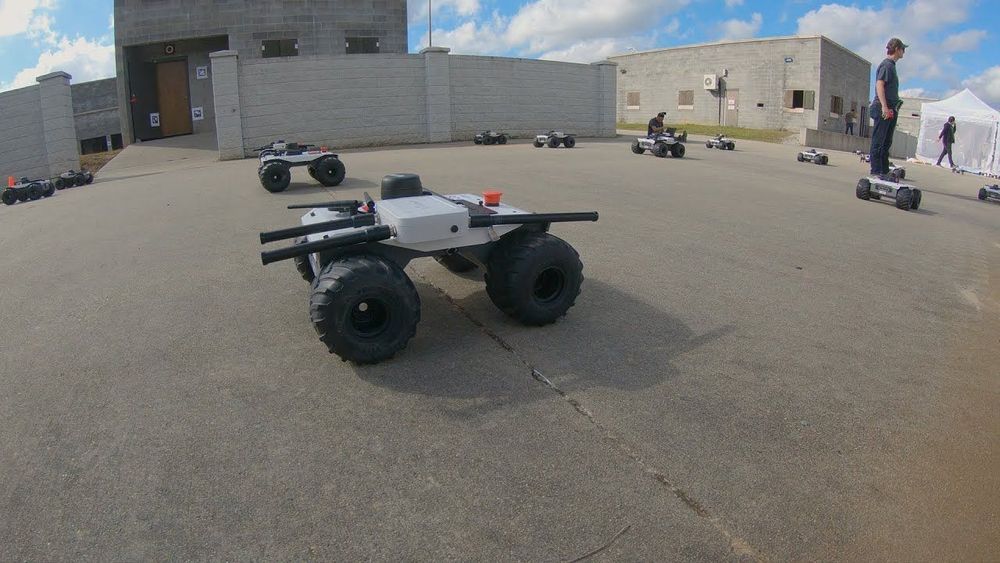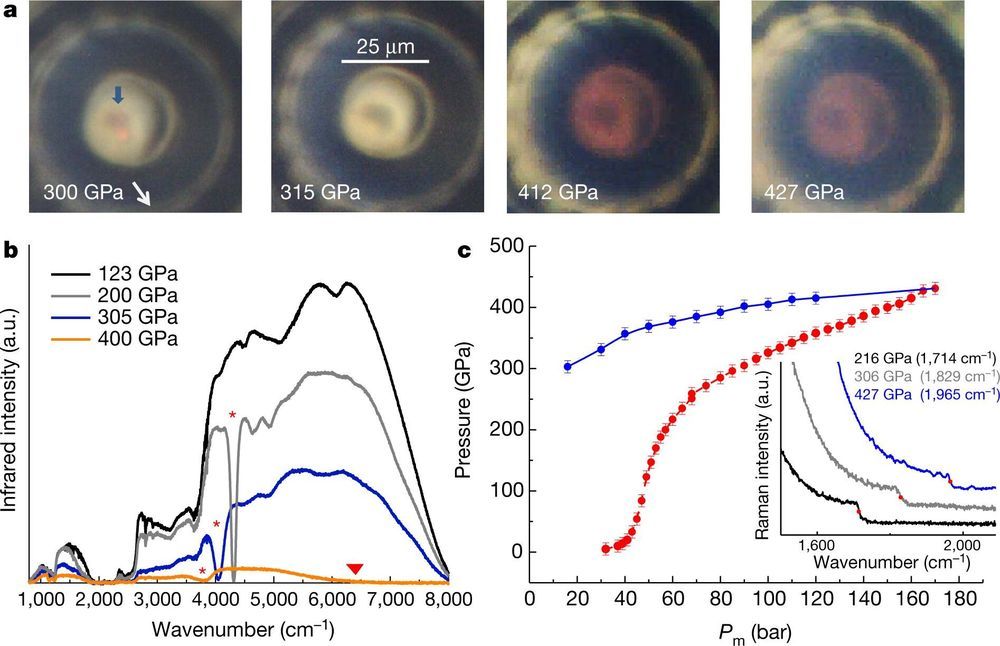Page 7958
Jan 31, 2020
Shapeshifting objects found at the center of the Milky Way galaxy
Posted by Paul Battista in category: space
Jan 31, 2020
A Cure for Cancer Might Be on the Way — and It Could Turn Healthcare Investing Upside Down
Posted by Paul Battista in category: biotech/medical
An exciting new discovery holds the potential to completely disrupt the healthcare industry as we know it.
Jan 31, 2020
What happens to your body when you get infected with coronavirus?
Posted by Paul Battista in category: futurism
Jan 31, 2020
DARPA deploys swarms of autonomous robots to carry out urban raid
Posted by Quinn Sena in categories: drones, military, robotics/AI

A swarm of autonomous robots has been deployed by researchers from DARPA to test how the technology could be used as part of an urban raid. The experiment was part of a project to find ways to map environments and gather real-time intelligence using aerial and land based robots.
In the not-so-distant future, hundreds of unmanned drones and on-the-ground rovers could swoop into an area of interest and spew crucial data to human military operators faced with limited sight lines or tasked with navigating unpredictable spaces, researchers the Defense Advanced Research Projects Agency (DARPA) said this week.
Jan 31, 2020
Researchers find evidence for metallic hydrogen at 425 gigapascals
Posted by Quinn Sena in categories: materials, mathematics
A team of researchers, two with the French Atomic Energy Commission (AEC) and a third with the Soleil synchrotron, have found evidence of a phase change for hydrogen at a pressure of 425 gigapascals. In their paper published in the journal Nature, Paul Loubeyre, Florent Occelli and Paul Dumas describe testing hydrogen at such a high pressure and what they learned from it.
Researchers long ago theorized that if hydrogen gas were exposed to enough pressure, it would transition into a metal. But the theories were not able to derive how much pressure is required. Doubts about the theories began to arise when scientists developed tools capable of exerting the high pressures that were believed necessary to squeeze hydrogen into a metal. Theorists simply moved the number higher.
In the past several years, however, theorists have come to a consensus—their math showed that hydrogen should transition at approximately 425 gigapascals—but a way to generate that much pressure did not exist. Then, last year, a team at the AEC improved on the diamond anvil cell, which for years has been used to create intense pressure in experiments. In a diamond anvil cell, two opposing diamonds are used to compress a sample between highly polished tips—the pressure generated is typically measured using a reference material. With the new design, called a toroidal diamond anvil cell, the tip was made into a donut shape with a grooved dome. When in use, the dome deforms but does not break at high pressures. With the new design, the researchers were able to exert pressures up to 600 GPa. That still left the problem of how to test a sample of hydrogen as it was being squeezed.
Jan 31, 2020
Dutch Scientists Just Shattered Our Conception Of How Information Will Travel In The Future
Posted by Quinn Sena in categories: particle physics, quantum physics
Essentially the higgs boson could allow for warp bubble technology to pop out of the space time continuum then basically pop back in.
Using quantum teleportation.
Jan 31, 2020
Jeff Bezos Adds $13.2 Billion to His Fortune in Just Minutes
Posted by Fyodor Rouge in category: futurism
Jeff “Pesos”
Thats the Gdp of the Maldives lol.
Shares of his Amazon.com Inc. surged 12% to $2,100 in extended trading at 4:16 p.m. Thursday in New York, after the largest U.S. e-commerce company reported fourth-quarter results that smashed Wall Street estimates.
Continue reading “Jeff Bezos Adds $13.2 Billion to His Fortune in Just Minutes” »
Jan 31, 2020
Geomagnetic ‘Super Storms’ Expected To Occur Once Every 25 Years, Says New Paper
Posted by Bruce Dorminey in category: futurism
Jan 31, 2020
Caltech Researchers Discover How To Levitate Objects With Laser Light
Posted by Quinn Sena in category: futurism
Circa 2019 o.o
Scientists at Caltech have discovered a way to levitate small objects using only beams of laser light. They can also lock on and manipulate the objects.

















